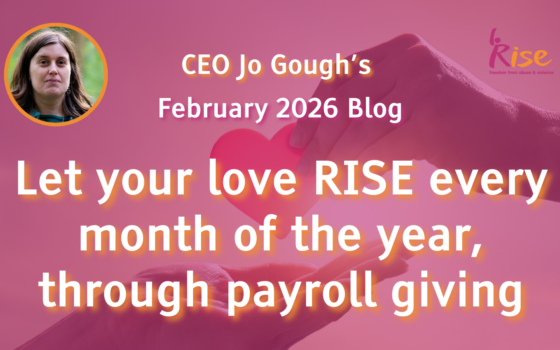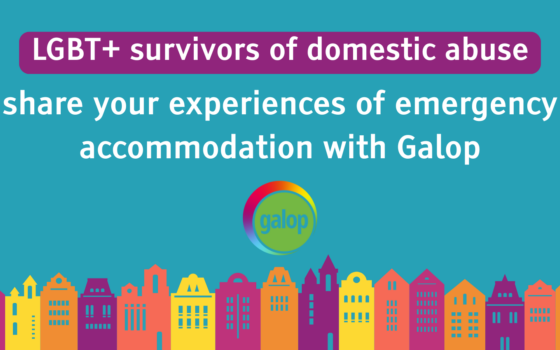August is a time of celebration for many people in Brighton and Hove. Brighton Pride - Friday 2nd August to Monday 5th August - is believed to be the biggest Pride event in the UK. It sees thousands of people take to the streets, to party and enjoy, and to celebrate love and the right to express that love. Brighton and Hove Pride began in October 1972 with a demonstration by The Sussex Gay Liberation Front. A full Pride march followed in July 1973. Our Trustee Dani Ahrens was one of the founding organisers.
Dani shared her stories and memories from her lifelong activism in this article, published during LGBT History month earlier this year. Dani also commented on the decision to withdraw funding from RISE for the LGBT Dispersed Refuge and associated services. ‘It is pretty shocking, that part of that acceptance and sanctuary in Brighton and Hove, this LGBT refuge provision, is being threatened with being taken away.’
At the end of July, just a few days before Pride, RISE said goodbye to our LGBT+ Dispersed Refuge Caseworker. With that funding withdrawn, at this point we are unsure what the future will be for this much-needed service. Before our colleague left, I asked what the loss of the service would mean, and what differences there were between domestic abuse in straight or LGBT+ relationships.
Our specialist LGBT worker told me that in the first quarter of 2024, 92.31% of the people supported by the LGBT+ service reported having at least one disability. This compares with 29.42% across the rest of the services in the same period. They also told me that ‘almost all’ of the people supported reported experiencing abuse in childhood - often abuse which included or related to homophobia, biphobia or transphobia.
As adults, LGBT+ people who experience abuse experience many of the same abuses of power and control as those in straight relationships but there are differences too. Abuse can be more complicated due to societal prejudices and discrimination. For instance, an abuser might threaten to "out" their partner’s sexuality or gender identity as a means of control. The fear of not being believed or taken seriously can also be more pronounced in LGBT relationships - many victim-survivors have been let down by services to the extent that they do not believe there is real support there for them. They have valid concerns that the police or support services may not understand or be sympathetic to their situation.
When I asked what would happen for the people who use the LGBT+ service, after its closure, our colleague mentioned the services that do remain - locally there is Switchboard and nationally, Galop. Both provide fantastic support but their capacity too is limited - Galop is national, for example, so is not set up to provide face to face support locally. There is a huge and already unmet need for a range of specialist services for LGBT+ people - especially here, where the LGBT+ population is so large.
Our colleague said,
‘A big part of my job has been figuring out how to build trust and be worthy of the commitments I make to people. I’ve been able to be very flexible, and have been able to keep supporting people for longer than the general service might be able to, recognising that there are additional barriers here. Many of the people the LGBT+ service has worked with have complex ongoing situations, and have experienced repeated letdowns. This can mean they struggle to engage, even if they really want to. We’ve been able to provide assertive outreach, making contact with people, making sure that they know we’re here if they want us - that we don’t want them to fall through the net if they want it to catch them. Most services don’t have the capacity to do that. I feel really sad that this service is ending and I’m going to miss my clients to much.’
At our charity, even without the funding for the full LGBT+ service, we are committed to providing support for LGBT+ as best we can. In this, our 30th year as a constituted charity, we remember that lesbians were part of the start of the RISE story and continue to be so today - we are part of the LGBT+ community, providing services by people from within it, so we recognise the unique challenges faced by LGBT individuals.
Want to help?
Individuals can donate here
Business can find out about partnerships here
Need help? Contact our helpline - details here


